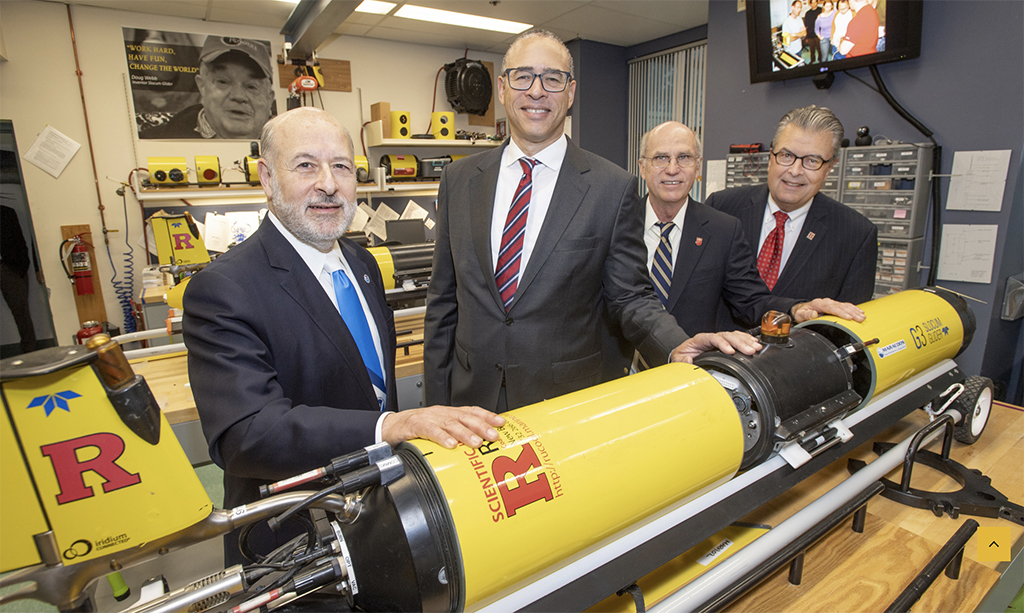Rutgers, NOAA and glider maker mark RUCOOL milestone
For 30 years Rutgers’ Center for Ocean Observing Leadership (RUCOOL) has taken the lead in pioneering research that has changed our understanding of the oceans and the way information is collected.
National Oceanic and Atmospheric Administration (NOAA) Administrator Rick Spinrad joined Rutgers President Jonathan Holloway and marine and coastal science researchers and students last week to celebrate the accomplishments of RUCOOL and to look back at the research gains made since Superstorm Sandy 10 years ago.
“I’m really proud of everything that’s going on here at Rutgers,” said Spinrad, who has supported the research efforts of Rutgers faculty and students, led by RUCOOL co-director Scott Glenn, a Distinguished Professor in the Department of Marine and Coastal Sciences, and department chair and Distinguished Professor Oscar Schofield.
Working with government, industry, and academic partners, RUCOOL guides underwater gliders that provide observational data – combined with data gathered from planes that fly into hurricanes and the Argo fleet of robotic instruments that drift with the ocean currents and move between the surface and a mid-water level – to deliver more accurate views of ocean activity in hurricane models. The resulting models lead to better hurricane monitoring by NOAA and forecasting by the National Weather Service.
“As the land grant institution of New Jersey, Rutgers recognizes our key role in equipping our local communities and all of our 21 counties with the research and information needed to prepare for the change in climate,” Rutgers President Jonathan Holloway said. He congratulated the RUCOOL team for three decades of service to the state, country, and world last week at the Department of Marine and Coastal Sciences in the School of Environmental and Biological Sciences at Rutgers-New Brunswick.
Spinrad recalled early discussions decades ago with Glenn and Schofield about the idea of sending a glider across the Atlantic Ocean to gather needed data and information. Spinrad and Rutgers alumnus Craig McLean, recently retired as assistant administrator of NOAA Research, supported Rutgers researchers as they developed the glider technology with Teledyne Webb Research.
Today, Rutgers is the third-largest operator of ocean gliders behind only the National Science Foundation and the U.S. Navy and the technology deployed is more important than ever.
“Hurricane Harvey dumped five feet of rain on the Houston area. Ian dumped two feet of rain in Florida. These are different storms,” Spinrad said, noting the increasing intensity of hurricanes. “They’re massive storms. They’re slow. They’re powerful. Our ability to get the observations, build the models and make the predictions is becoming even more critical.”
Full article at Rutgers Today

